The Last Dinner For Relish As The City Cracks Down On Supper Clubs
By Staff in Food on Nov 21, 2014 4:15PM
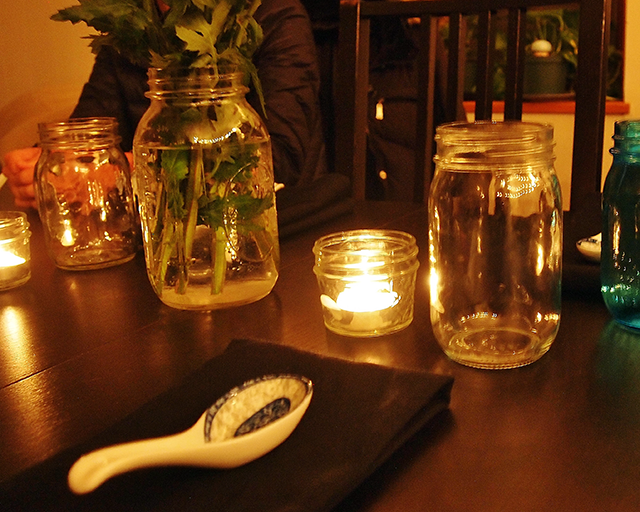
Photo by Carrie Laski
On a recent Friday evening I walked into a cozy, candlelit dining room and sat down at a tastefully set table for some delicious vegetarian Vietnamese food. Was I at a time-honored restaurant off Argyle or a new concept eatery in Logan Square? No. I was in Julia Pham’s apartment for what would turn out to be the last Relish Underground dinner.
Thanks to a citation from the city of Chicago, Julia Pham, a 20-something, self-taught chef who got her start in her aunt’s kitchen at Ba Le, will have to end her DIY dinners at their current location. For two years she has been cooking and serving dinner to eager guests under the name Relish Underground in order to satisfy her creative drive and to engage with others who want to eat, enjoy, and learn about food as much as she does. Each dinner is intimate, with only twenty-four seats available, BYOB, and often has a theme based on what is inspiring Julia at the time.
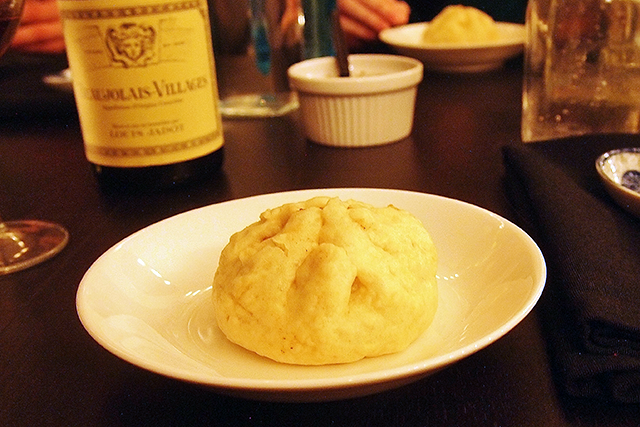
Photo by Carrie Laski
Most recently she served up Vietnamese vegetarian comfort food at a dinner called Bao & Cháo. The first course was a perfectly warm, fluffy banh bao filled with cabbage and shitake mushrooms. Housemade chili oil was on the table for those of us who wanted a little extra kick.
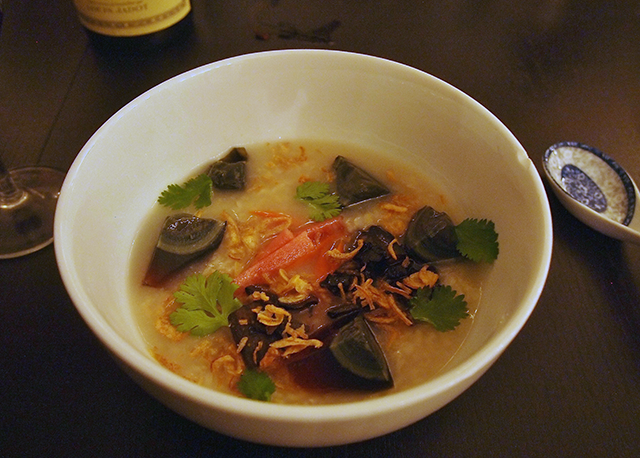
Next came a beautiful bowl of cháo, or brown rice porridge with seasonal pickles, fried shallots, caramelized mushrooms, cilantro, and topped with a preserved duck egg.
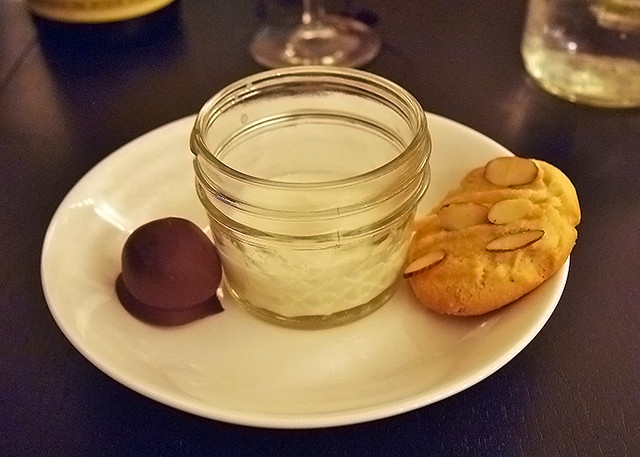
Almonds were the star of the dessert course, hanh ngot, which means sweet almond. The key ingredient was featured three ways: as an almond butter cookie, as a marzipan and orange essence truffle covered in milk chocolate, and as a little jar of fresh-pressed almond milk. A sweet and simple ending.
Selling dinners out of your home was never legal, but in the past, the city turned a blind eye, allowing supper clubs that operated under a "donation" model to pretend they weren't really selling food. It allowed the incubation of many of Chicago's best chefs, but it was always tenuous legally despite the fact there were never any food poisoning outbreaks associated with it. You might think home-cooked food is always illegal to sell, but since 2012 Illinois has had a cottage food law, which allows home cooks with a food service sanitation certificate to sell at Farmer's Markets. This law could serve as a model for allowing small supper clubs to operate legally.- Melissa McEwen
With crackdowns on underground dining in Chicago, such a preference is difficult to sustain, but so is the alternative. The city requires a Retail Food Establishment license any time “perishable food is prepared, served, or sold to the public,” and depending on the size of the establishment, license application fees can run anywhere from $660 to $1,100. These prices don’t take into account taxes for restaurants, the cost of other required permits necessary for selling food, and the time it can take to acquire all the necessary documents, making it more of a pipe dream for people who want to serve their food without opening a full-fledged restaurant.
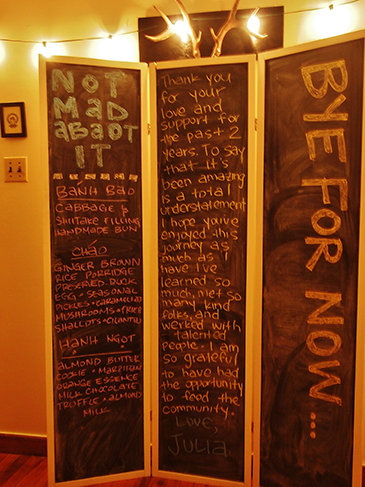 Not surprisingly, all this red tape pushes many people with culinary aspirations toward the DIY dining scene where they cook and serve meals without approval from the city’s health department. Herein lies the reason for citations from the city. Officials want to ensure public safety, and can’t do so if they do not know where and how food is being prepared. This concern is valid, but one can’t help but point out the irony in the meticulous care most underground chefs take in preparing their food versus the unsanitary, roach-infested kitchens of a few sanctioned eateries in Chicago (not naming names…).
Not surprisingly, all this red tape pushes many people with culinary aspirations toward the DIY dining scene where they cook and serve meals without approval from the city’s health department. Herein lies the reason for citations from the city. Officials want to ensure public safety, and can’t do so if they do not know where and how food is being prepared. This concern is valid, but one can’t help but point out the irony in the meticulous care most underground chefs take in preparing their food versus the unsanitary, roach-infested kitchens of a few sanctioned eateries in Chicago (not naming names…).
The future is unclear for many underground chefs, but one thing is certain: those who cook from their souls and put their hearts into every dish they plate will not be stopped easily. This is how I know we have not seen the last of Julia Pham.
By Carrie Laski